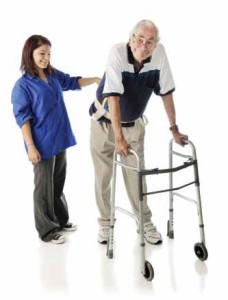When to Ask for Assistance – It takes a village to age in place
According to AARP, over 80 percent of people wish to remain in their own homes as they age. Living with the comforts of familiar surroundings and a lifetime of collected belongings helps people to feel safe and provides a high quality of life. But without a doubt, we all have diminishing capacity as we grow older, so how do we know when it is time to ask for assistance for ourselves or a loved one?
Identifying the need for personal assistance sooner rather than later is the single most important factor in maintaining independence and a high quality of life.
Here are some red flags, if you find yourself thinking any of following you should be looking for assistance:
“I’m afraid I/she/he will fall” – If someone is frail, losing weight, muscle mass and balance they may need assistance with exercise, nutrition, oral health and environmental modifications to prevent a fall.
1. “His/her behavior is changing”- This could be a sign of cognitive decline caused by Alzheimer’s, stroke, pharmaceuticals, orcomorbidities, a professional caregiver can monitor the situation and provide support to the person experiencing the change.
2. “I’m tired of doing all the work, I need a life” – A current caregiver might be experiencing unhealthy levels of stress which could lead to ill health and jeopardize the well-being of the person being cared for, respite care is critical to managing the stress of caregiving.
3. “I/she/he cannot keep his medications straight” – Noncompliance with medication can have long term devastating effects, a professional caregiver can ensure proper adherence to medication protocol.
4. “I/he/she is alone too often and not eating properly” –Assistance with socialization, meal planning and shopping can ensure the quality of life of someone living alone.
By forming a relationship with a Professional Home Health Agency, individuals can avoid the devastating effects outlined above. An agency can provide flexibility, adjusting levels of assistance to the changing needs of individuals. The earlier the need for professional assistance is recognized, the better the chance for maintaining independence and a high quality of life.


Leave a Reply
Want to join the discussion?Feel free to contribute!